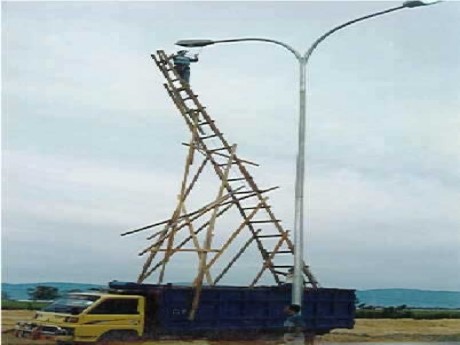NOTE:
- Always review the operation and maintenance manual for your machine.
- In cold weather conditions, start the engine 15 minutes before operation.
- Inspect the condition of stairs, ladders and walking surfaces for icy and slippery conditions.
- Always maintain 3 points of contacts when accessing and egressing the cab.
Walk around the equipment and verify:
- Machine guarding is in place and suitable for use.
- There are no leaks or spills or deteriorating hoses and cords.
- The machinery is clean and there are no loose objects, rocks or debris that could fall and cause injury.
- Bolts, belts, gears, attachments and other removable parts are securely fastened and not worn.
- Screens and filters are clean and unobstructed.
- Tracks and wheels are in good condition and free of debris.
- Tires are in good condition and there are no cracks or deformations.
- Fluid levels meet manufacturer’s requirements.
- Fire suppression equipment, spill kits and other emergency response supplies are in place.
- Grab irons are firmly attached and not cracked or broken.
Conduct in-cab inspection and verify:
- Windows are clean and unobstructed.
- Mirrors are clean and are positioned to provide the best visibility to the ground, wheels and adjacent objects.
- Lighting, back-up alarms, horns and other audible controls are working.
- Blind spots and areas of poor visibility are known.
- Sight gages are functioning and displaying the desired readings.
- Brakes, including the parking brake, are properly functioning.
- Large moving components of the machinery are functioning (e.g. buckets, blades and booms) by operating up and down, side to side and in and out. This is especially important during cold weather conditions.
- Windshield wipers are properly functioning. Have them replaced when they deteriorate.
Questions to Generate Discussion
- What additional areas of your equipment need inspection during cold weather conditions?
- What are the most common wear items on your machinery? Are frequent inspections in place?



